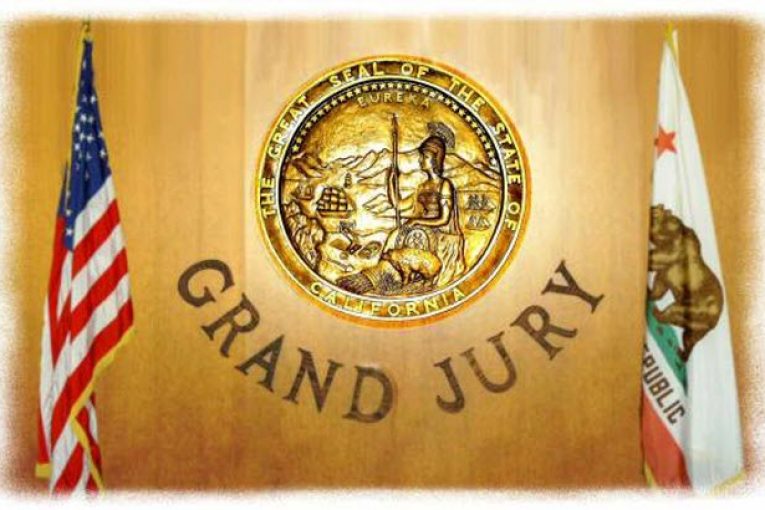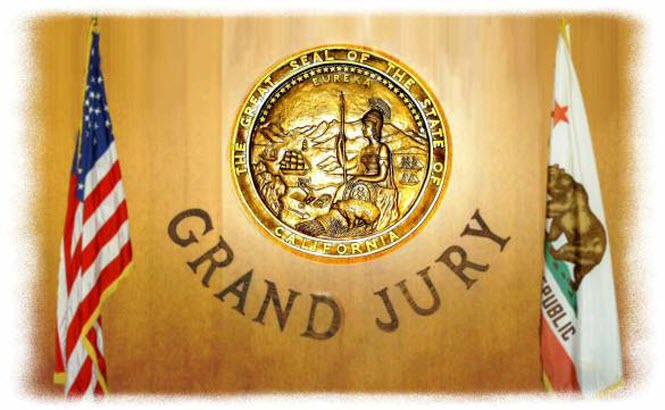

(From Press Release) —The purpose of the Yolo County Grand Jury is to act as a citizen watchdog to review and investigate complaints about local government, and to report its findings and recommendations to Yolo County residents.
On June 28th, the 2018-19 Yolo County Grand Jury released its final report. The report contains five investigative reports and the annual impact analysis titled, “Did the 2017-18 Grand Jury Improve Local Government?” The analysis looks at county and local government responses to six investigative reports published by the Grand Jury last year. The 2018-19 reports contain 48 findings and 27 recommendations. They include:
- FLOOD MANAGEMENT IN THE URBAN ENVIRONMENT
The Grand Jury received complaints that the City of West Sacramento (City) was inappropriately moving toward bringing Reclamation Districts 537 and 900 under City governance as subsidiaries. There are concerns that flood protection funds may be misallocated by the City. The reclamation districts are opposed to coming under City jurisdiction.
The December 2017 Yolo Local Agency Formation Commission (YLAFCo) Draft Report made two recommendations. One was the subsidiary option and the other was to allow the reclamation districts to consolidate.
For unknown reasons, the consolidation option was removed before the 2018 YLAFCo Final report was published. In spite of YLAFCo’s recommendation, RD 537 and RD 900 submitted proposal applications in December 2018 to consolidate. The YLAFCo recommendations and the proposal applications were the focus of this investigation.
“The Grand Jury found there was a lack of communication and proactive collaboration among the agencies involved (RD 537, RD 900, City, and YLAFCo) over the vital topic of West Sacramento flood protection,” said Geoffrey Engel, foreperson of the 2018-19 Grand Jury.
YLAFCo may have failed to do a thorough examination of costs, exposure of the City’s General Fund, and the solvency of the West Sacramento Area Flood Protection Agency (WSAFCA), before the Final Report was reduced to one unique option. By its own admission, YLAFCo knew this path was risky yet did so in contrast to its own previously stated positions.
Grand Jury recommendations include ensuring that all reclamation district websites are transparent and highlight the work performed, initiating regular meetings between the reclamation districts and the  City, increasing the size of the WSAFCA Board, changing YLAFCo’s policy to include independent, third-party examinations of controversial topics, and publishing the next YLAFCo Maintenance Service Review and Sphere of Influence Report for RD 537 and 900 earlier than scheduled to ensure that decisions are not detrimental to the citizens of West Sacramento. The Grand Jury also recommends the formation of a countywide flood committee or working group so that all flood issues are highlighted for communities of the county.
City, increasing the size of the WSAFCA Board, changing YLAFCo’s policy to include independent, third-party examinations of controversial topics, and publishing the next YLAFCo Maintenance Service Review and Sphere of Influence Report for RD 537 and 900 earlier than scheduled to ensure that decisions are not detrimental to the citizens of West Sacramento. The Grand Jury also recommends the formation of a countywide flood committee or working group so that all flood issues are highlighted for communities of the county.
- OFFICE OF REFUGEE RESETTLEMENT (ORR): ORR PLACES YOUTH IN YOLO COUNTY DETENTION – WHAT CAN BE IMPROVED?
The Grand Jury received complaints regarding the health and well-being of unaccompanied alien children detained by the ORR at the Yolo County Juvenile Detention Facility (JDF).
Unaccompanied alien children are assessed by the ORR and placed in facilities based on legal requirements in order to provide a safe and least restrictive setting. Placement could be in a shelter facility, foster care, group home, staff-secure or secure care facility, residential treatment facility, or other special needs facility.
The JDF is one of two secure care facilities in the United States. The other is in Virginia. The JDF houses ORR youths who are assessed by the ORR as being a danger to themselves or others, or who have been charged with a criminal offense. The JDF has found many of the unaccompanied alien children to be inaccurately assessed by ORR, and has released youths or transferred them to a less restrictive facility, whenever appropriate.
The Grand Jury found that the reasons ORR gives for referring youth for placement at the JDF are sometimes inappropriate, many ORR youths lack criminal or gang affiliation yet are housed at JDF with those who do, JDF procedures do not mandate a behavioral therapist consistently in the pods nor at use-of-force reviews, the ORR program is financially important to the county yet there are risks for potential litigation, and the uncertainty about length of stay and future placement creates stress for ORR youth.
Recommendations include ensuring the Notices of Placement include immigration status and the steps youth need to take for release from the JDF, allowing ORR youth who are not charged with criminal offenses to have private unrecorded phone calls, conducting activities outside whenever possible, having the Board of Supervisors study the controversial use of pepper spray, mandating attendance of behavioral therapists at use-of-force reviews, having the Board convene an independent interdisciplinary group to ensure ORR youths’ privacy, considering posting Probation Department policies and procedures on the County website, and considering using an empty pod for transitional adult detainees thus enabling JDF to continue with ORR and the funding it provides.
- MISSED FUNDING OPPORTUNITIES: WEST SACRAMENTO FLOOD CONTROL PROJECTS
The Grand Jury identified that flood control projects in the West Sacramento area did not receive the requested federal funding for levee improvement projects. The missed funding opportunities were significant.
California has large-scale flood management plans, but it is the responsibility of each community to secure funding for flood protection. The West Sacramento Area Flood Control Agency (WSAFCA), comprised of the City of West Sacramento and Reclamation Districts 537 and 900, attempted to obtain funding for its flood protection projects.
WSAFCA failed to secure funding in the last two budget cycles. The Sacramento Area Flood Control Agency (SAFCA) received its entire requested amount. When urban centers, such as Sacramento, strengthen their flood defenses, the flood risk could be transferred to neighboring unimproved levees, such as those in West Sacramento.
The Grand Jury developed three recommendations. The City of West Sacramento and WSAFCA should immediately establish open lines of communication with supporting regional, state and federal partners. They should maintain relationships with consultants and lobbyists who have expertise in flood protection. Finally, given the flood risk in our county, the Board of Supervisors should lead the creation or reactivation of a county-wide flood protection collaboration group.
- SCI-TECH ACADEMY – A MODEL FOR THE FUTURE?
The Grand Jury decided to look at this charter school’s educational strategy and its future challenges. Sci-Tech opened in 2010 in the former Grafton Elementary School site in Knights Landing. Sci-Tech uses science and technology to connect teachers, students, and parents to the educational task, and to reach out to the broader community. Charter schools have the flexibility to fashion a unique curriculum and draw students from a wide area.
Sci-Tech has a strong governance committee and an involved parent organization. The school uses effective communication systems to connect with families and integrate an educational plan for its students. Sci-Tech connects older students with younger students to promote social confidence.
Sci-Tech faces issues related to enrollment, and its location in a floodplain, which makes additional construction cost prohibitive. However, its innovative approach to education and attention to relationships makes it a unique model worthy of replication.
- HEALTH AND HUMAN SERVICES: THE DRUG MEDI-CAL DELIVERY SYSTEM – A WATERSHED MOMENT
The Grand Jury initiated an investigatory report on the newly-implemented Drug Medi-Cal Organized Delivery System (DMC-ODS).
On July 1, 2018, the Yolo County Health and Human Services Agency (HHSA) implemented a change in the treatment of Substance Use Disorders (SUD). Yolo County is taking part in the DMC-ODS pilot program under California’s Medicaid Section 1115 waiver in 2015. DMC-ODS includes 10 essential benefits mandated by the Affordable Care Act (aka Obama Care) which were limited under the Drug Medi-Cal Standard Program.
The DMC-ODS significantly improves care by covering a previously ignored population, especially adult men. Those interviewed by the Grand Jury agreed that this program was a transformative step in SUD treatment.
Yolo County and HHSA should be commended for participating in this pilot program to improve the care of its citizens.
The Grand Jury recommends HHSA assign a full-time staff person to support and assist current and future providers of DMC-ODS, and HHSA should identify more service providers so residents need not travel out of the county.
“In these reports, the 2018-19 Yolo County Grand Jury made several recommendations to improve the services provided by Yolo County. The potential benefits of the Grand Jury’s recommendations demonstrate the value of its work as an agent for positive change,” said Geoffrey Engel, foreperson of the 2018-19 Yolo County Grand Jury. “We are pleased to provide these reports to the public.”
The full report is posted on the Grand Jury’s website:
http://www.yolocounty.org/business/community/grand-jury/yolo-county-grand-jury-reports
About the Yolo County Grand Jury
The Grand Jury is made up of 19 citizens selected by the Yolo County Superior Court. Jurors serve one-year terms that conclude on June 30 each year. In addition to advising the county District Attorney on whether to bring indictments in select criminal cases, the Yolo County Grand Jury also conducts an annual inquiry into the condition and management of public jails and serves as a citizen watchdog over public offices and agencies within the county. Yolo County residents who are interested in participating on the Grand Jury may learn how to apply at: www.yolocounty.org/business/community/grand-jury
How to file a complaint with the Grand Jury
Residents who have a complaint about a public official or entity may download a form at: https://yolocountyca.seamlessdocs.com/f/CitizensComplaintForm. Complaint forms are also available at the county courthouse, county jail facilities and local libraries, or can be requested by calling (530) 406-5088, or writing to the Grand Jury, P.O. Box 2142, Woodland, CA 95776, or by email to grandjury@yolocounty.org
